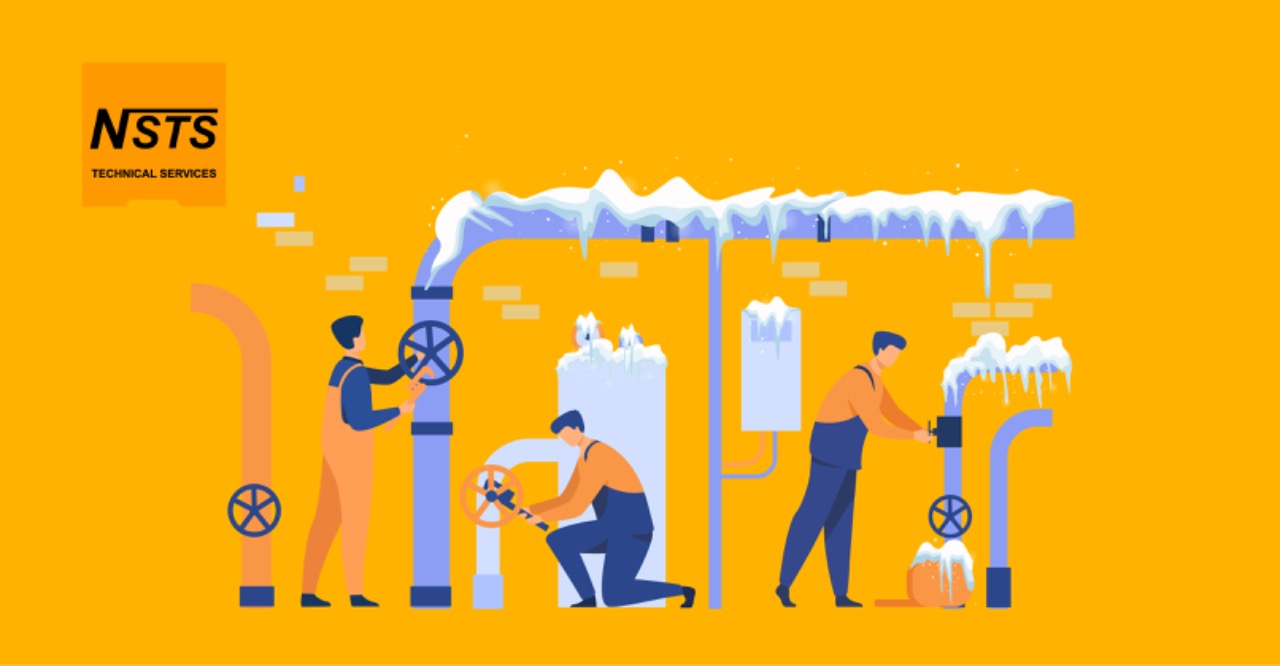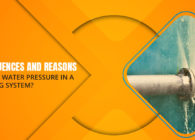
Simple Ways to Prevent Frozen Pipes in the Winter
Protecting pipes from freezing is crucial in addition to performing regular winter house maintenance. Even a little pipe crack can leak gallons of water, causing burner degradation and structural failure. It also poses an immediate risk of mold growth. Families are affected each year by frozen water pipes in both cold and warm climates. It can happen in both plastic and copper pipes in a home. You can help lessen the likelihood of frozen water pipes and related property damage by implementing the precautionary procedures listed below.
How to Spot Frozen or Freezing Pipes
Some plumbing lines are visible from the inside, allowing you to see what’s going on inside the pipe. If the inside of the pipe is coated in frost or if a peculiar bulge is forming within it, it has most likely frozen. If the metal on the outside has begun to bulge out, that’s also a sign that something isn’t right.
Unfortunately, not all pipes provide easy access to their inner workings. Your pipes may also be covered behind walls, making it impossible to detect any problems. You’ll have to rely on alternative detecting methods in this circumstance.
Testing sinks, toilets, and showers around the house is a smart approach to see whether there’s a potential frozen pipe in your home. If any of your toilets won’t flush or refill themselves, or if any of your faucets won’t turn on, you most likely have a frozen pipe. You might wish to hire a plumber to help you locate the pipe’s exact location. Contact our HVAC Service in Dubai for better solutions.
Tips to Protect your Pipes from freezing
Quick temperature decreases, insufficient insulation, and thermostats set too low are the three main causes of frozen pipes. During the summer, you can start preparing your home. Here are some safety tips:
-
Pipes should be insulated
Pipe insulation in your home’s crawl spaces and attic can help even if you live in a climate where freezing is uncommon. The pipes that are exposed to the elements are the most vulnerable to freezing. Also, remember that the more insulation you use, the better your pipes will be protected.
-
Heat tape or heat wires can be used
One alternative is to use heat tape or thermostatically controlled heat wires to wrap pipelines. Use only goods that have been approved by a third-party testing organization, such as Underwriters Laboratories Inc., and only for the purpose indicated (exterior or interior). Follow the installation and operation instructions provided by the manufacturer to the letter.
-
Leaks should be sealed
Find and seal any leaks that allow cold air into your household. Look for air leaks around electrical wires, dryer vents, and pipes and plug them with caulk or insulation to keep the cold out. Contact our Electrical Maintenance Dubai to seal your electrical cables safely.
-
Out front, secure all hoses, valves, and faucets.
Unplug garden hoses and, if necessary, use an internal lever to turn off and drain the water from pipes running to outside faucets before the winter begins. The risk of freezing in the short distance between the house and the pipe is reduced as a result.
-
Allow the water to drip
To keep your pipes from freezing, all you may need is a tickle of hot and cold water. Allow warm water to drip from a faucet on an outside wall overnight when the weather is chilly.
-
Make the necessary adjustments to the thermostat
Frozen pipes can also be avoided by maintaining the same temperature throughout the day and night on your thermostat. During periods of extreme cold, this also helps to reduce the strain on the furnace.
-
Cabinet doors should be opened
If you’re concerned that these regions aren’t getting enough heat, you may assist them stay warm by keeping the cupboard doors open. Because this permits heat to reach pipes under sinks and appliances near outside walls that aren’t insulated.
What should you do if your pipes freeze?
When pipes freeze, they don’t necessarily burst. If you require assistance, contact a plumber. If nothing comes out when you turn on the faucets, leave them on and call a plumber. Appliances should not be used near water. Therefore, in situations where there is standing water, do not use electrical equipment. It’s possible that you’ll be electrocuted. Do not use flames to defrost pipes. Never use a torch or other open flame to thaw a pipe because this can constitute a fire danger. Water damage is preferable to your home being destroyed by fire!
Do you have a leaking or frozen pipe in your home that needs to be repaired as soon as possible? We’re here to assist you. Please contact our Mechanical Service in Dubai if you have any questions or issues.





